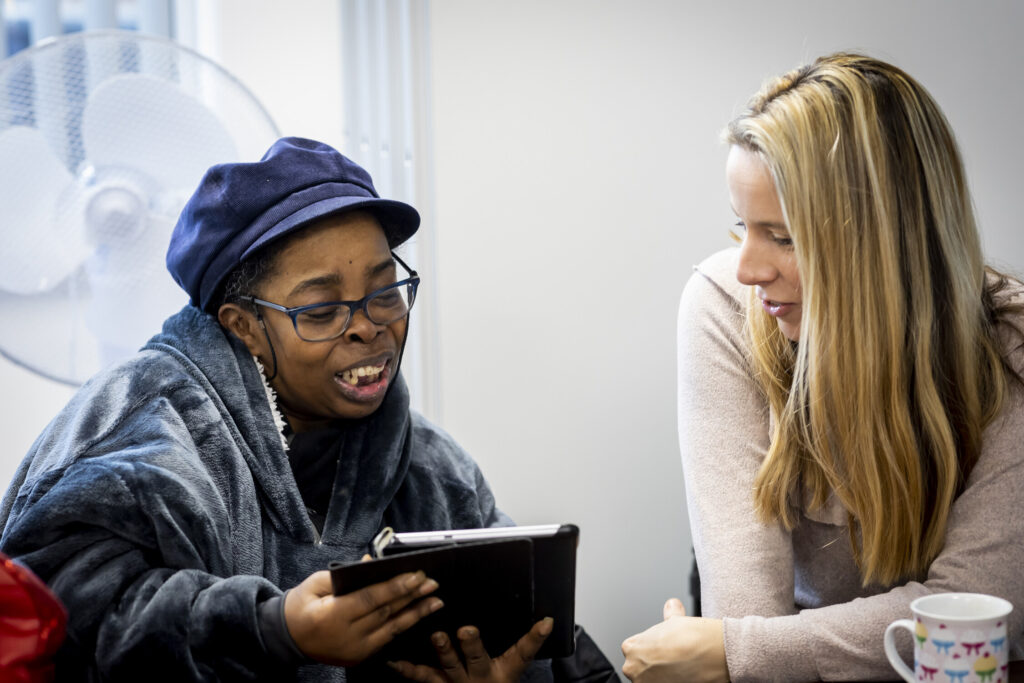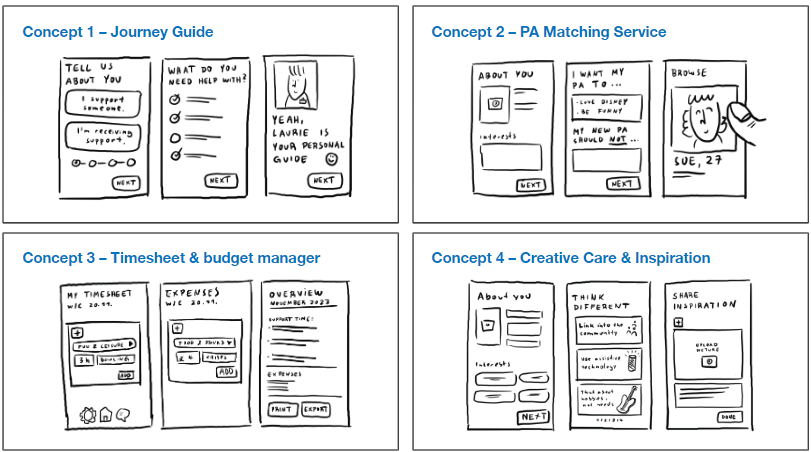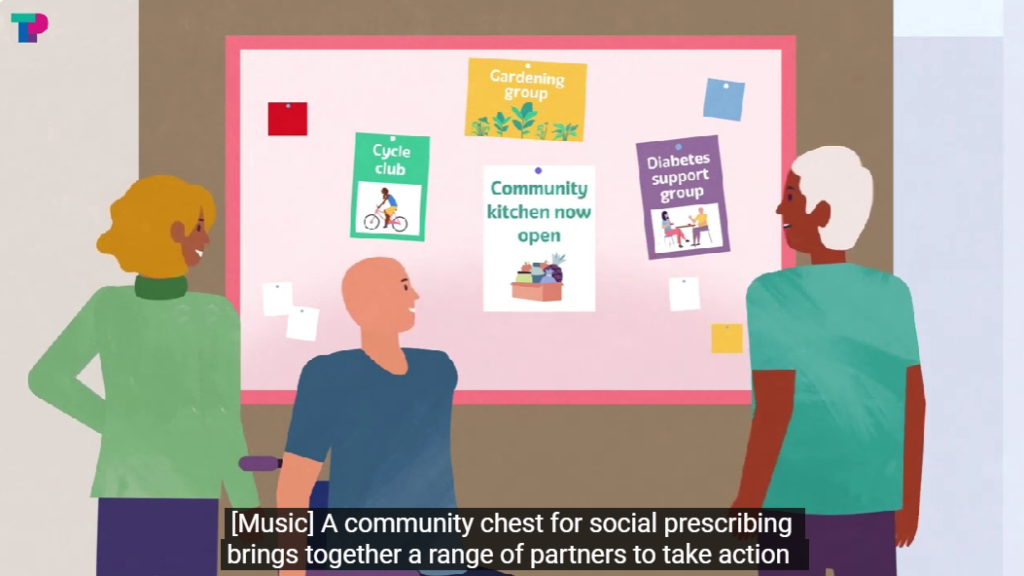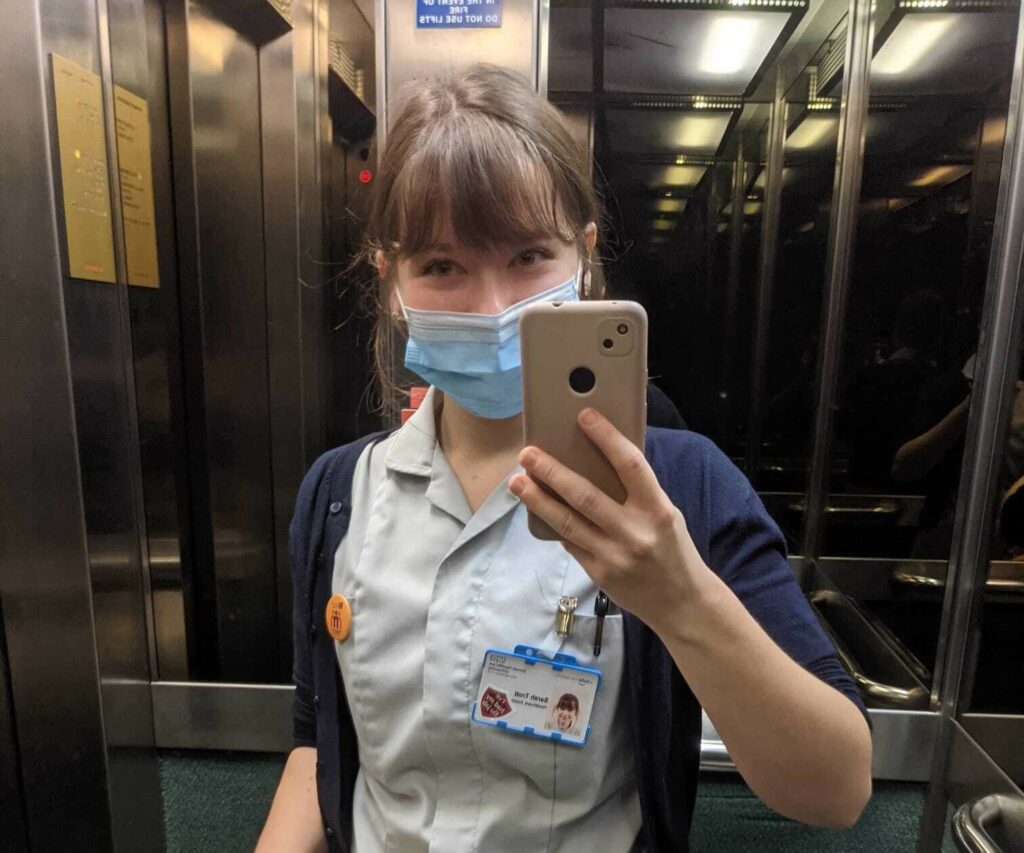Transforming lives of people who direct their own care support

Care City and partners progress to the second phase of Health Foundation’s Tech for Better Care programme, supporting the co-production of a digital platform to transform the lives of people who direct their own support.
Since September 2023, Care City and In Control have been working together, in co-production with people who direct their own support, to explore how digital tech can help to create the scaffolding that will permit more people to direct their own care or support successfully. We have been able to do so thanks to being selected as one of the ten teams across the UK selected to join Phase one of The Health Foundation’s Tech for Better Care programme.
We’re really excited to have been selected to go through to the second phase of the programme, during which we’ll test and refine ideas developed during our research and co-design, centred on supporting people to plan their own lives and support, to connect with a peer mentor, and to become part of a wider community of mutual support.
As Neil Crowther’s blog explores, the national proportion of those drawing on care and support and choosing direct payments has remained consistently low over the past eight years. There are also a significant number of people who are not benefiting from self-directed support (SDS) at all.
Throughout the work we have been led by the understanding, experience and ideas of people who self-direct support themselves or for a family member. Together, we explored the challenges and potential support mechanisms relating to administrative burden, communication between individuals and their support circles, and peer support and learning.
There should be someone to hold your hand. Step by step and go at your own pace.
Research Participant
Our research found that people often feel abandoned at the beginning of their self-directed support journey and want help both to navigate the bureaucratic and administrative complexities and to find out about imaginative solutions and possibilities that have been created by others.
I couldn’t really find anything tech related that would’ve helped me with organising my care.
Research Participant
Funding from Phase two will allow the team to further explore and prototype a digital resource that helps people to connect with others already directing support and to develop the confidence, skills and inspiration to take full advantage of the opportunities SDS presents.

The digital platform will offer guidance and inspiration at all stages of people’s SDS journey. Members can exchange ideas via an online community of support; building relationships, offering and drawing on inspiration and creative solutions/products to maximise the autonomy and choice of self-directed support. We’ll continue to deliver the work in co-design with people who have lived experience of SDS as we aim to:
- Improve choice, control and wellbeing of individuals and families
- Link people into communities of mutual support
- Provide clear guidance and peer support when needed
People who direct support themselves or for someone else often feel overwhelmed and left alone to figure it out. Many people experience SDS in a limited and transactional way and those who have learned how to make the most of SDS have developed creative hacks and imaginative approaches but finding out about these examples is difficult.
Likewise Local Authority SDS leaders are worried about fulfilling their obligations under the Care Act 2014. With strained resources, they focus a lot on oversight and assurance of SDS rather than enabling a more personalised and user-centred approach. This funding from The Health Foundation, coupled with the insights that our co-design/user groups are sharing, will be invaluable in enabling us to develop a solution that meets user needs and genuinely transforms lives
Matt Skinner, CEO, Care City
If you are interested in finding out more, or you have lived experience and would like to help us in the next phase of this important work, please get in touch. We’d love to hear from people who want to share their experiences and help us to make the best of technology in this space.


